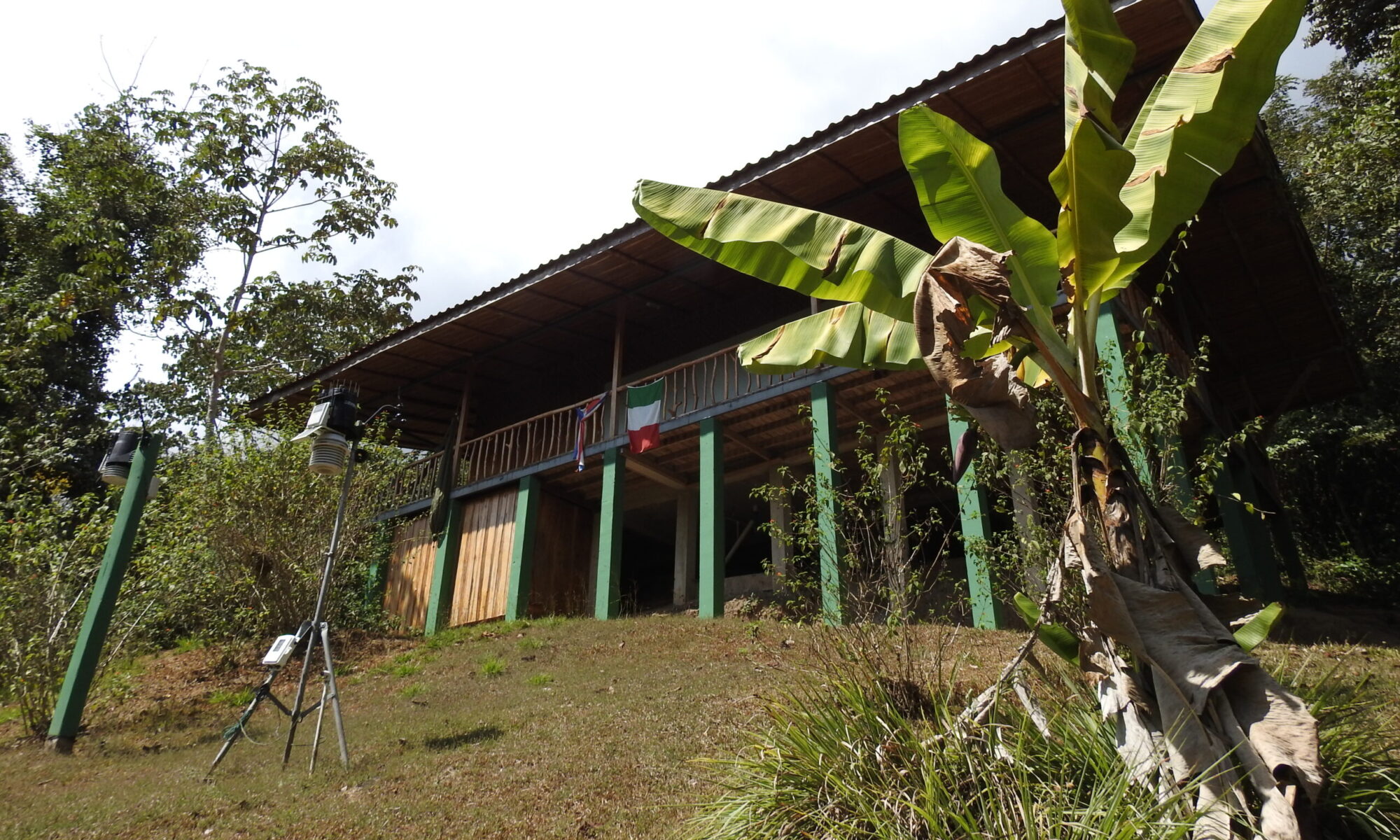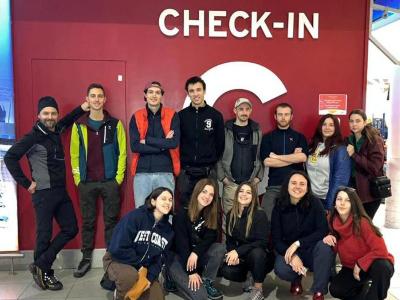Study and research expedition in Costa Rica for 12 Unimore (Modena and Reggio Emilia University, Italy) students
12 Unimore students have left for a unique experience in Costa Rica where they will participate in the ” Field School – Costa Rica 2023 “. The School, which reaches its second edition after two years of suspension of activity caused by the pandemic emergency, involves twice as many students who left in 2020.
In particular, the participants involved belong to the three-year degree courses in Natural Sciences (9 students) and the master’s degree courses in Science Education and Communication (1 student) of the Department of Chemical and Geological Sciences and to the three-year degree courses in Biological Sciences (1 student) and Master’s degree in Experimental and Applied Biology (1 student) of the Department of Life Sciences.
The students, who leave on Monday 16 January, will stay for over three weeks in Costa Rica where they will be able to discover some of the extremely varied natural realities of Costa Rica guided by Unimore scholars Luca Lombroso, Matteo Dal Zotto , Giuseppe Romeo , Dario Sonetti and members of the Modena association “Foreste per Sempre ODV”.
The Field School will consist of interactive lessons on investigative methods in various fields of the natural sciences, with particular focus on fauna and flora, tropical meteorology and climate change, and field applications .
The initiative will mainly take place in the Karen Mogensen Reserve , a protected area of about 1000 hectares , managed by the local conservation association Asepaleco, in which several surveys have recently been conducted and are still being carried out, mainly in the zoological, botanical and weather fields.
These studies largely favorites by the creation of the “Italia Costa Rica” research station , created thanks to funds raised by Foreste per Sempre even among Modena Enterprises and sponsored by Unimore with the express purpose of studying tropical biodiversity and the effects that environmental and climate change they can generate on it. For over 6 years, a meteorological station and a webcam have been sending data to the Unimore Geophysical Observatory , providing indications on the meteorological and climatic variability of the area.
“ The “Italia Costa Rica” Meteo-Climatic Biological Station in the Karen Mogensen Reserve – report prof. Dario Sonetti , Scientific Director of this structure since 2019, and dr. Matteo Dal Zotto , promoter within the Degree Course in Natural Sciences and co-organizer of the Field School – it will be a privileged venue for the implementation of this initiative for Unimore students, who will have the unique opportunity to live in total contact with one of the richest realities of tropical biodiversity as they are usually only forced to learn from books. It is an educational experience which, for those studying Natural Sciences, should be essential. As has already happened for other students who have worked in this area for their degree theses, they will return to Italy with a cognitive and professional background that will certainly contribute profitably to their future work and life.”
“The Field School – comments Luca Lombroso of the Geophysical Observatory of DIEF Unimore – will be an opportunity to show students, thanks to the five years of data collected here, and an introduction of tropical meteorology and climatology. According to the latest research, the “Hadley cell” which regulates circulation in the tropics, but is also connected to the weather in the mid-latitudes, has widened by about 2-4 degrees of latitude. If this trend continues, it could have major social impacts, but also ecological changes in plants, insects or animals.”
During the Field School, students will also be able to visit other protected areas of Costa Rica: from the Absolute Natural Reserve of Cabo Blanco , an untouched strip of coast and forest on the Pacific Ocean, to the Palo Verde National Park , with wetlands and the mouth of a of the main rivers of the country, to the Volcán Tenorio National Park and the Miravalles National Park , characterized by the suggestive misty forest, which reaches almost 2000 meters of altitude and in which live, among others, the jaguar and Baird’s tapir, up to the National Park Cahuita , located along the Caribbean coast and created to protect the country’s main barrier reef.
Participants will get to know the local staff of parks and protected areas, discovering further research activities conducted in habitats representative of a small part of the natural wealth of what is considered the country with the highest density of biodiversity in the world.
“We are very proud – says Prof. Annalisa Ferretti , President of the Interclass Council in Natural Sciences and in Science Education and Communication- that the students have once again and so enthusiastically accepted our challenge to operate directly on the ground, even within a protected area that has already provided valuable information to the scientific community. The Field School, the result of collaboration between degree courses of the Department of Chemical and Geological Sciences and the Department of Life Sciences, in synergy with the Foreste per Semper association, will put our students in close contact with tropical biodiversity, the dynamics of the current climate system and the effects of its change. Participants will keep a sort of “logbook” of their activities on the Degree Course’s Facebook/Instagram S4EDU page. Some of them will translate this experience into thesis projects,
“It is an opportunity of extraordinary interest for our students, a reality that arises from the initiative and experience of the University – says Prof. Annamaria Mercuri , President of the Master’s Degree Course in Experimental and Applied Biology- and which confirms the teachers’ great sensitivity and competence in terms of flora and fauna biodiversity. In these times of rapid transformations of ecosystems and the need to mitigate the anthropic impact on the environment, the Field School, which arises from the cooperation between the departments that address these issues in their study courses, Chemical and Geological Sciences and Life Sciences, leads students to encounter an exceptional example of species diversity, relationships in a tropical environment and the close relationship between ecosystem dynamics and the response to ongoing climate change”.
The Field School Costa Rica will represent an extraordinary opportunity for students of Biological Sciences – says prof. Vincenzo Zappavigna President of the Degree Course in Biological Sciences – to gain first-hand experience, in the field, in the sectors of environmental biology and biodiversity conservation. An opportunity for growth not only professionally, but also personally. In fact, according to the testimonies of those who have participated in the past years, it is a unique experience that will leave a lasting imprint on their personal and professional lives, whatever the field of biology in which the students will operate in their future career”.
The Field School in Costa Rica will be recognized as part of the university internship, on the basis of an active agreement between the Foreste per Semper OdV Association and Unimore.


